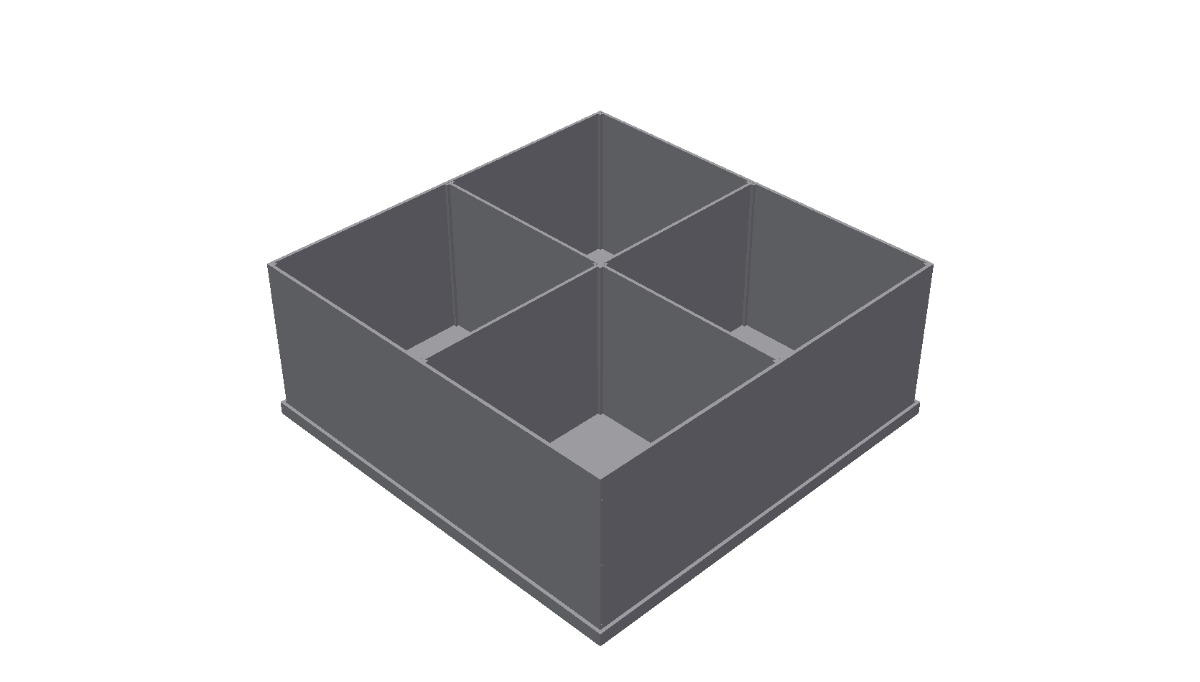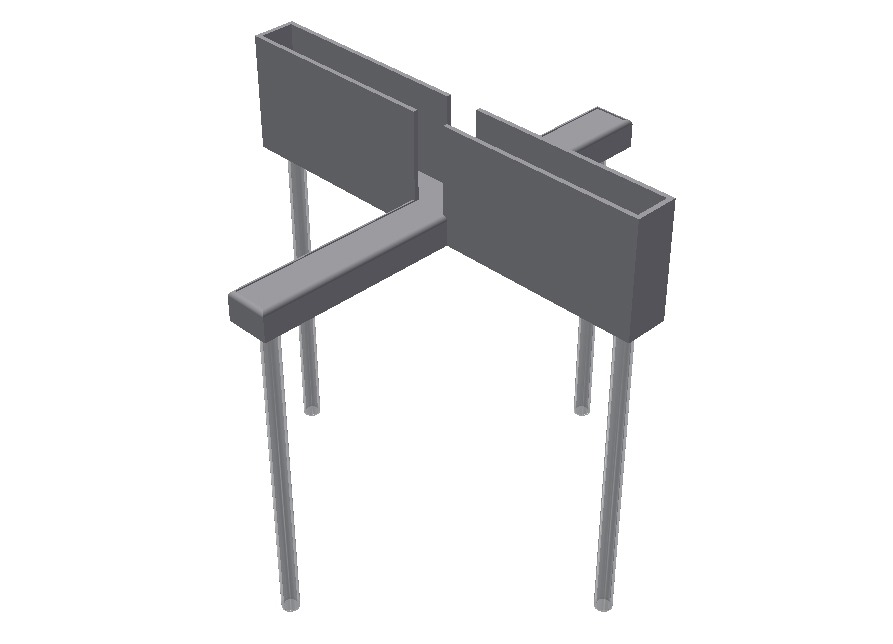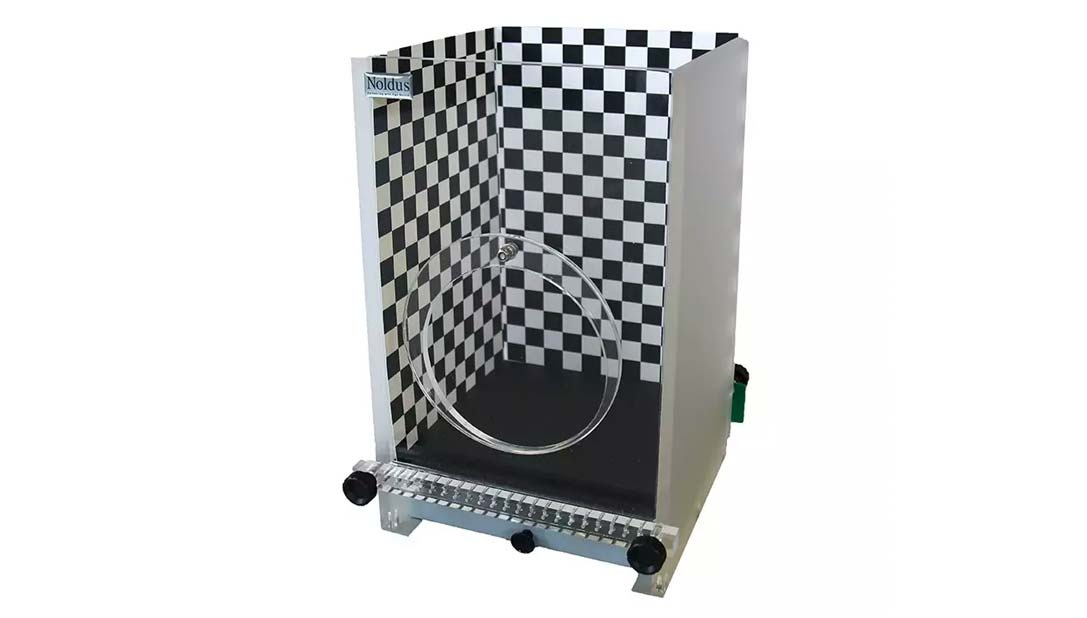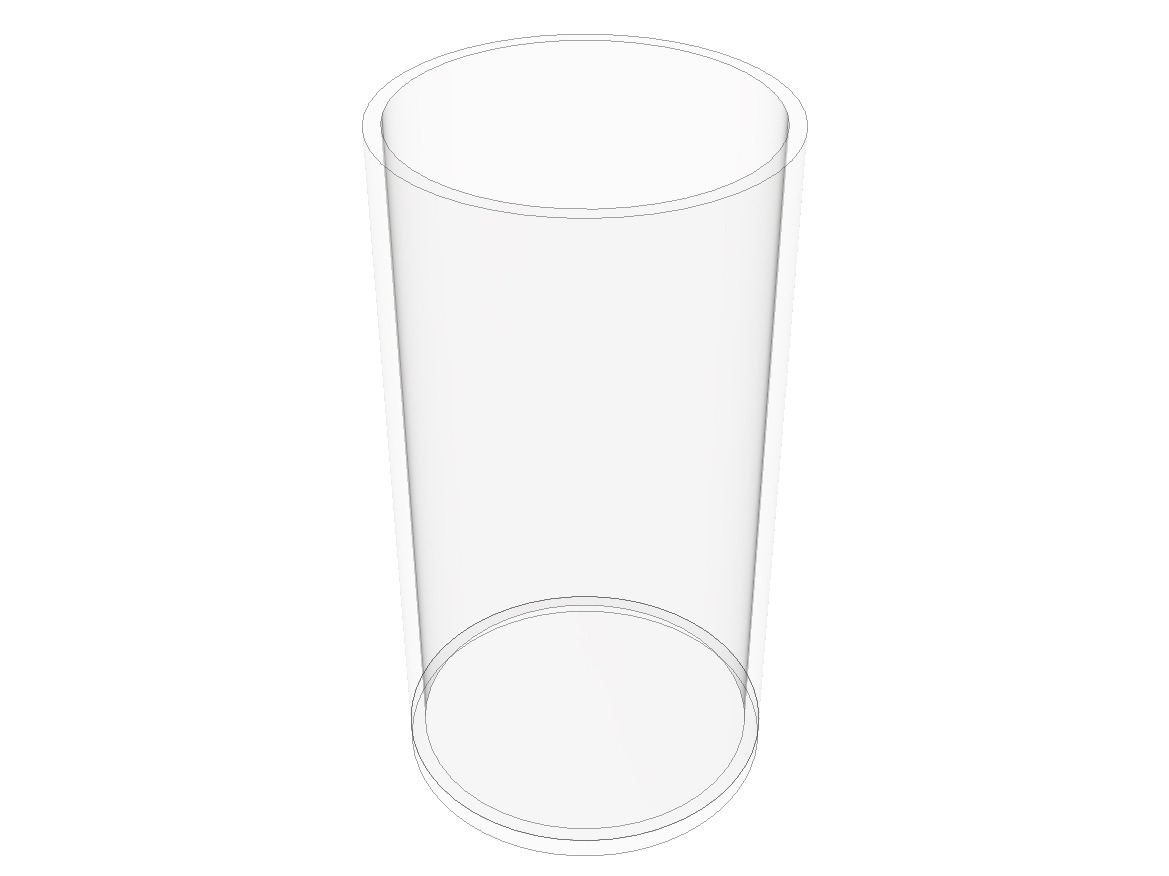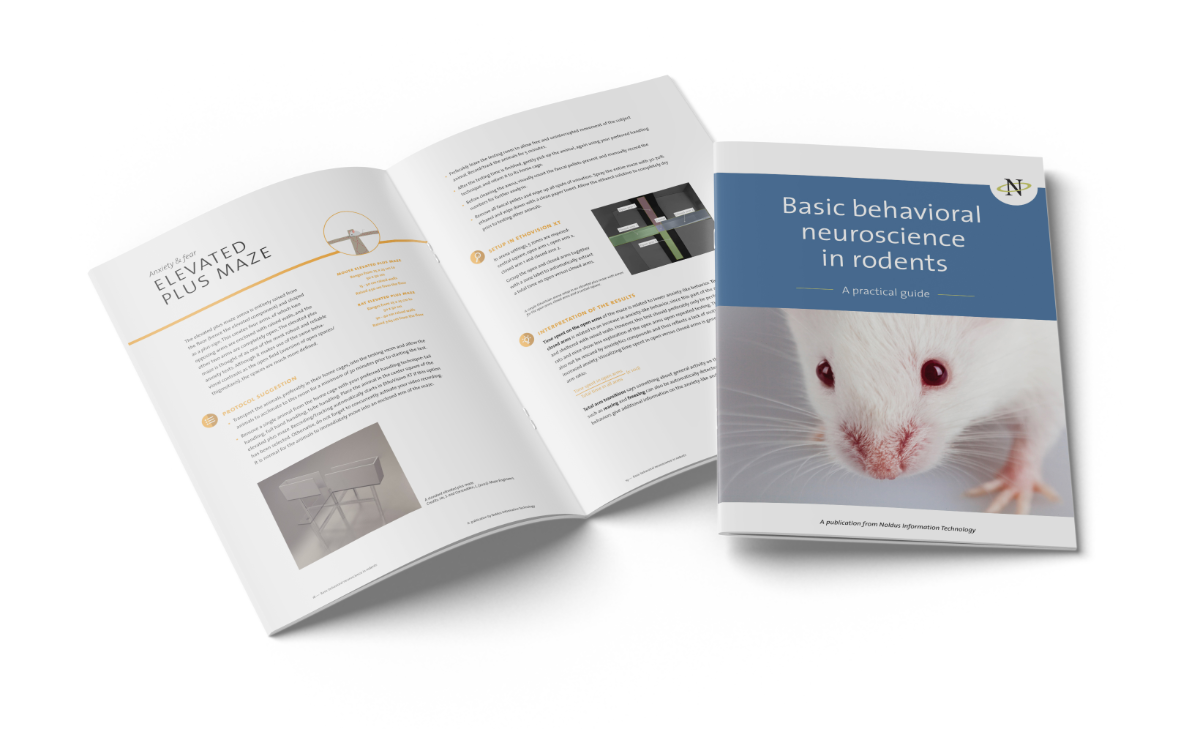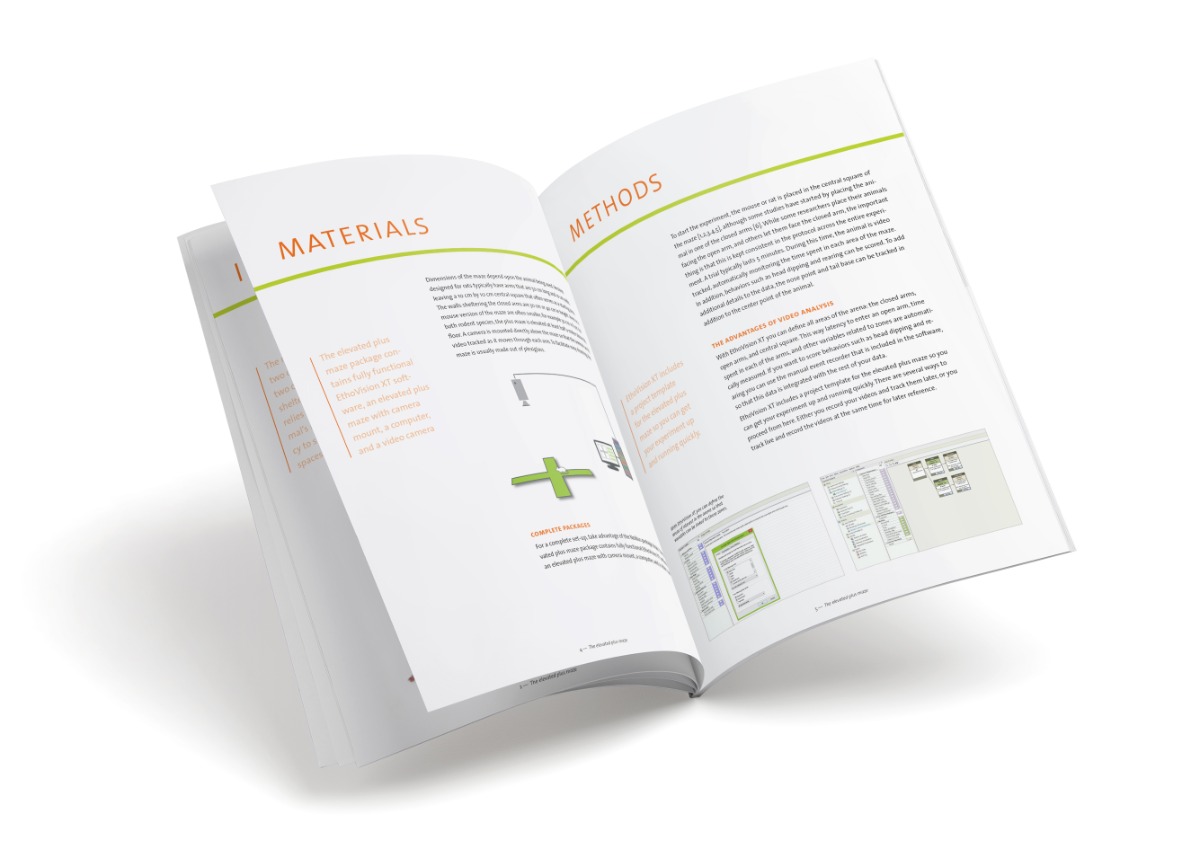Solutions for
Anxiety, fear & depression
Many psychiatric illnesses are depression- or anxiety-related disorders. Behavioral tests with rodents are crucial to get insights on the underlying mechanisms and eventually find new treatments. A majority of studies utilize mazes such as the elevated plus maze, zero maze, open field, or light-dark boxes to investigate rat or mice behavior.

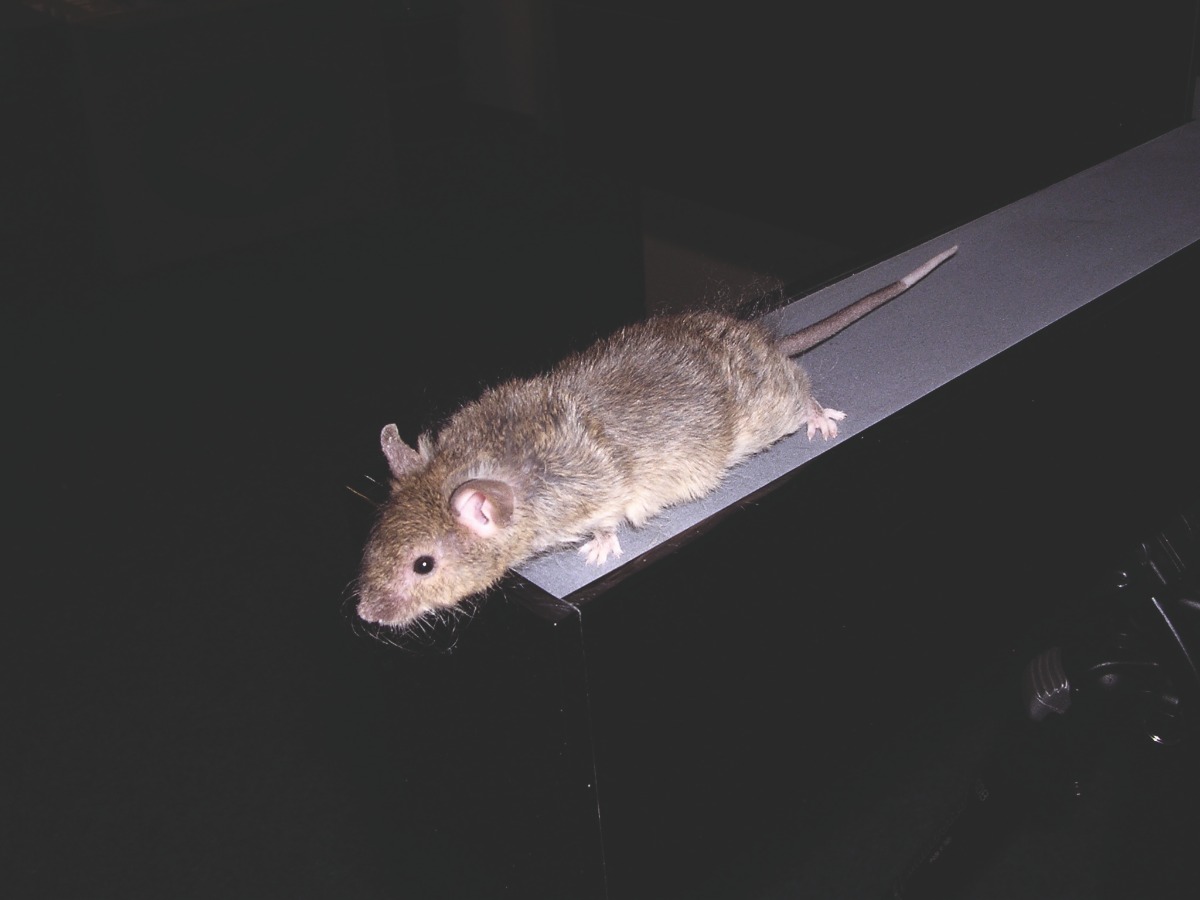
Common testing in the open field and elevated plus maze
Rodents prefer dark and enclosed areas, as it is perceived a saver environment against predators. This innate aversion to light is used in test set-ups to investigate anxiety and fear-related behaviors such as staying in the dark, freezing, and hyperactivity.
The open field and elevated plus maze are well-validated tests that both use the principle of offering a saver, darker environment and an open (often well-lit) area. More anxious animals tend to hug the walls in an open field, a behavior known as thigmotaxis, or spend more time in the closed-off arms in an elevated plus maze. Bolder animals start exploring the open areas sooner and spend more time there.
Light-dark box
Another test of anxiety response, is the light-dark box: a two-chambered box, offering a larger open area and a smaller, closed-off shelter. Again, this test is based on the innate light aversion and the spontaneous exploratory behavior of rodents in response to mild stressors.
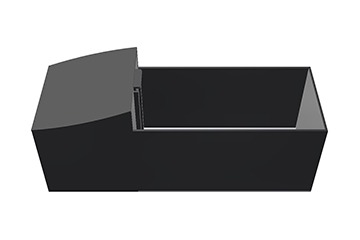
Mazes - Perfect for anxiety, fear, and depression studies
There is a wide range of mazes available and described in literature for the behavioral assessment of animal models. We offer any type of maze, standard or custom, and always perfectly suited for video tracking with EthoVision® XT. We also offer package deals!
Open field
The open field test is a straight-forward test to investigate activity, anxiety-related and exploratory behavior of rodents.
Elevated plus maze
The elevated plus maze is a well-characterized behavioral paradigm, one of the most used tests for anxiety research.
Light-dark box
The light-dark box is used to test the unconditioned anxiety response, based on the novel environment and the light/open space.
Fear conditioning
Fear conditioning and other learning tasks in rodents are typical in a wide range of neuropharmacological studies, amongst others.
Forced swim test
The (Porsolt) forced swim test, also known as the behavioral despair test, is used to test for depression-like behavior in both mice and rats.
Other tests for anxiety
Anxiety influences other behaviors, such as feeding and social interaction. The novelty suppressed feeding (or hyponeophagia) test assumes that more anxious rodents tend to be more apprehensive in consuming novel food. Measuring approach-avoidance in social interaction tests can also be used as an indicator of anxiety.
Free e-book
Basic behavioral neuroscience in rodents
Anxiety, fear and depression are among one of the more tricky behavioral readouts to quantify. What test measure what readout exactly? And what is the difference between anxiety and fear? Which tests should I, or should I not use to measure depression? We guide you through these questions and some behavioral paradigms in our free behavioral neuroscience e-book.
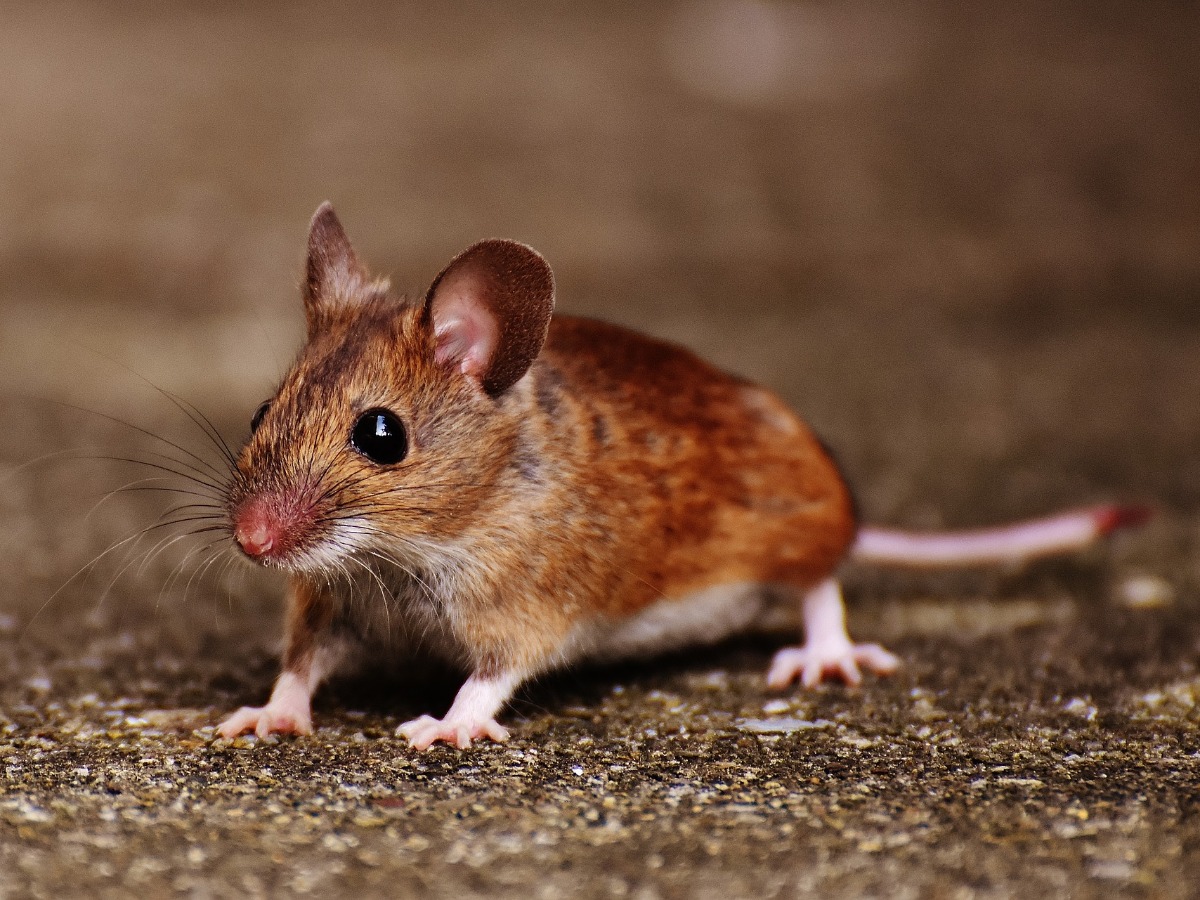
Depression-like behavior
Depression is more controversial to interpret in rodents. Behavioral despair is often used as an indicator, a common test for behavioral despair is the Porsolt forced swim test. In this test, a rat or mouse is placed in a cylinder filled with water. Floating behavior, where the animal is practically immobile with its head above water, is interpreted as hopelessness, an indication of depression-like behavior.
Automating tests
Behavioral testing for anxiety-, fear- and depression-like behavior is useful in the investigation of several factors, such as genetics, stress, or certain drugs. These tests are also used to determine if compounds have an anxiogenic or anxiolytic effect.
This type of research benefits greatly from automation. EthoVision XT video tracking accurately measures crucial variables like movement, immobility (freezing), hyperactivity, latency to explore open areas, time spent and distance moved in open and closed areas, and more.
Free white paper
Video tracking and the elevated plus maze
The elevated plus is the most used test to study anxiety and exploration in rats van mice. It is also a test that can be easily automated using video tracking software.
Are you interested in finding out how video tracking reliably automates your elevated plus maze test? What advantages video tracking software brings to your research? How other researchers use EthoVision video tracking for their plus maze experiments? Then download this white paper for free!

EthoVision XT is used in over 22,000 publications. Get your free trial to try it out!
Dr. Thomas Prévôt: "If therapeutics work in rodents, they can potentially be beneficial for human pathology."
Dr. Thomas Prévôt from the University of Toronto is developing a new tool to assess anxiety-like and depressive-like behavior in rodents, in order to understand the underlying mechanisms of chronic stress exposure and how it changes either behavior but also molecular and cellular pathology, to mimic the human depression.
Relevant blogs

Diving deeper: Obesity and Anxiety, a scientific perspective
It seems that there is a relationship between poor mental health and obesity. But the exact reasoning is far from clear. Animal experiments can shed light on the situation
 English
English German
German French
French Italian
Italian Spanish
Spanish Chinese
Chinese
